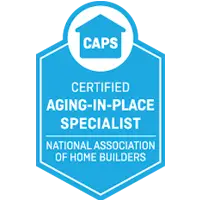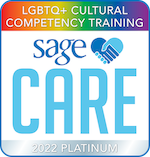The Joint Center for Housing Studies of Harvard University recently published their 2023 Housing America’s Older Adults Report. You can read the full report by clicking the following link: https://www.jchs.harvard.edu/housing-americas-older-adults-2023
Our Call to Action
In the face of the challenges highlighted by the 2023 Report, it’s clear that Givens Communities — Givens Home First included — plays a crucial role in making a positive impact on the lives of older adults in WNC. Recognizing the financial, health and access obstacles older adults face, dedication to our mission (creating community, empowering lives) and vision (endless possibilities, vibrant aging) becomes even more vital. At Givens, we’re dedicated to inspiring each other to be innovative, compassionate and proactive in finding solutions. Together, we are committed to making a meaningful difference by providing the support that our community needs to age with dignity and quality of life.
Summary
The aging population in the US has increased by 34% in the last decade, with a significant rise in disabilities among those aged 80 and over. Financial challenges hinder access to assisted living and in-home aide services for older adults. While the majority live in their own homes, disparities exist in internet access and transportation. Cognition, self-care, and independent living difficulties increase with age, and the majority will require long-term care support. Unpaid caregivers (often family members) contribute significantly, but the availability of family caregivers is declining. The cost of in-home aides is substantial, and few options exist to offset these expenses, leading some older adults to forgo necessary assistance. Labor shortages in LTC services, exacerbated by the pandemic, pose additional challenges, emphasizing the importance of workforce development programs.
Some Key Points
- The aging population in the US has increased by 34% in the last decade.
- Disabilities rise with age, affecting 55% of those 80 and over.
- Financial barriers limit access to assisted living and in-home aide services.
- The majority live in their own homes, but disparities exist in internet and transportation access.
- Difficulties in cognition, self-care, and independent living increase with age.
- Most older adults will need long-term care support.
- Unpaid caregivers contribute significantly, but their availability is declining.
- The cost of in-home aides is substantial, with limited options for financial support.
- Labor shortages in LTC services pose challenges, emphasizing the need for workforce development programs.
- In 2021, 97.5% of older adults lived either in their own home (88.2%) or that of someone else (9.3%), most frequently an adult child. The remaining 2.5% resided in group quarters like nursing homes.
Local WNC Resources
Beyond Givens Home First, Givens also addresses health disparities of underserved, diverse, and vulnerable populations in the wider WNC community by providing access to resources that empower improved wellness and quality of life. We invite you to learn more about Givens Life Ministries.
Some other resources:
- Council on Aging of Buncombe County: https://www.coabc.org/
- Council on Aging of Henderson County: https://coahc.org/
- United Way of Asheville and Buncombe County: https://www.unitedwayabc.org/









